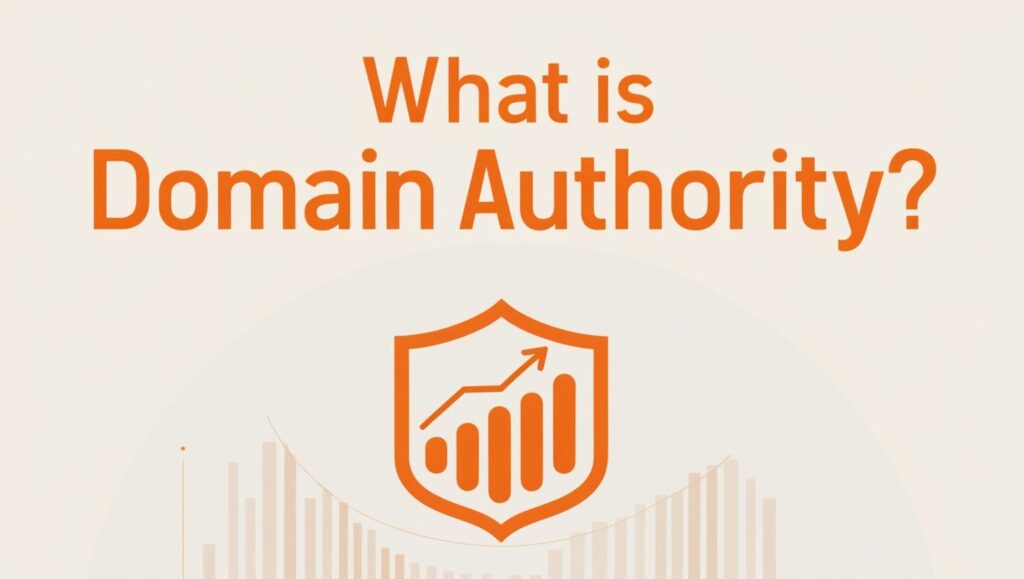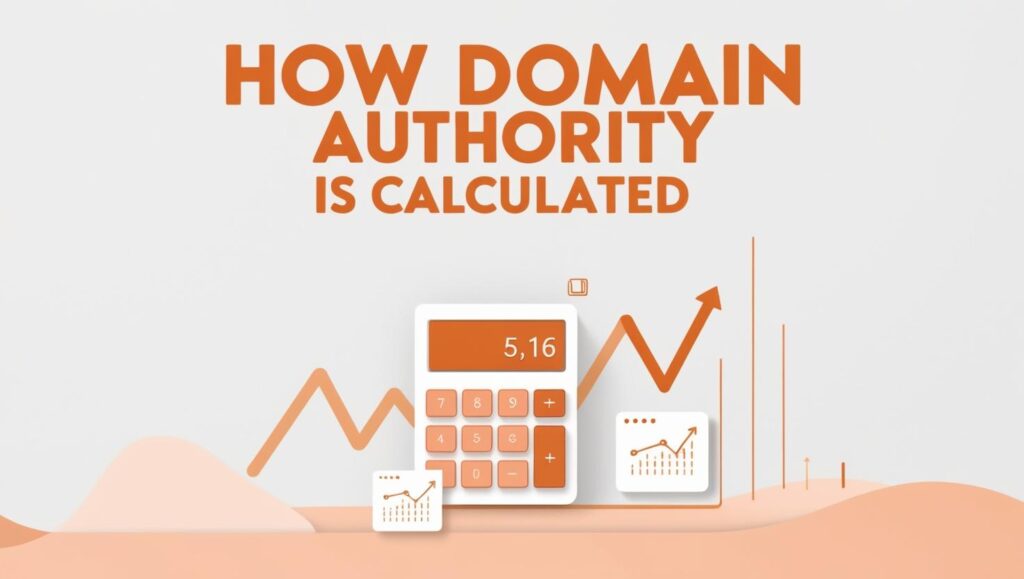Domain Authority (DA) is one of the most important metrics used by SEO professionals to measure the strength of a website’s ability to rank in search engine results. Developed by Moz, Domain Authority helps website owners and marketers predict how well a site will perform in search engine rankings.
In this article, we will explore the history of domain authority, how domain authority is calculated, and the difference between domain authority vs domain rating. We’ll also cover how frequently DA numbers are updated and how you can leverage DA to skyrocket your SEO rankings.
What is Domain Authority?

Domain Authority is a score that ranges from 0 to 100, with higher scores indicating a greater likelihood of ranking well on search engines. It’s calculated based on various factors, including the number of backlinks, the quality of those links, and the overall SEO health of the website. Essentially, DA provides a snapshot of your site’s overall SEO strength.
The History of Domain Authority
Domain Authority was created by Moz in 2005 to help SEO professionals assess the potential ranking power of a website. At the time, search engine optimization was becoming increasingly complex, and there was a need for a metric that could help website owners understand their site’s chances of ranking in search engine results pages (SERPs). Since its creation, Domain Authority has evolved to consider more complex ranking factors such as social signals, page speed, and mobile-friendliness. However, the primary emphasis remains on backlinks, as they are one of the strongest indicators of a site’s authority.
Moz continuously refines the DA algorithm to ensure it remains a relevant and accurate indicator of ranking potential. Over time, the tool has become indispensable for SEO experts and website owners who are looking to boost their site’s search visibility and competitive edge.
How Domain Authority is Calculated
The calculation of Domain Authority is a proprietary process, but Moz has outlined some of the key factors involved in determining the score. The most important factors influencing DA include:

- Backlink Profile: One of the biggest contributors to DA is the quality and quantity of backlinks pointing to a site. The more authoritative sites that link to your content, the higher your DA will be.
- Linking Root Domains: Not only does the number of backlinks matter, but the diversity of those backlinks is essential. Links from multiple, unique domains are valued more than many links from the same domain.
- MozRank: MozRank measures the popularity of a website based on the number and quality of links it receives. A higher MozRank indicates a higher likelihood of achieving a strong DA.
- MozTrust: MozTrust measures the trustworthiness of your site by analyzing the quality and nature of the websites linking to you. Websites that are highly trusted (such as government and educational sites) have a greater impact on increasing your DA.
- Sitewide Links: Links found across many pages of your site can also boost DA. However, the quality and relevance of these internal links matter.
- Content Quality and Freshness: Regularly updated content that offers value to users can increase your DA, especially if it attracts high-quality backlinks.
It’s important to note that DA is a logarithmic scale, meaning it’s much harder to increase your DA as your score gets higher. Moving from a DA of 30 to 40 is easier than moving from 70 to 80.
How Often Are Domain Authority Numbers Typically Updated?
Moz updates Domain Authority scores regularly, but not in real-time. The DA scores are typically updated on a monthly basis. However, Moz does not specify the exact schedule for updates, which means DA can fluctuate depending on changes in the site’s backlink profile, Moz’s algorithm updates, and other factors influencing the site’s SEO health.
For example, if your site gains a high-quality backlink or improves its content significantly, you may see an increase in your DA after the next update. Similarly, losing backlinks or experiencing a decline in content quality can lead to a decrease in DA.
Domain Authority vs Domain Rating: What’s the Difference?
When comparing domain authority vs domain rating, it’s important to understand that both are metrics used to assess the strength of a website, but they are developed by different companies and use different methodologies.
- Domain Authority (DA): As discussed, DA is developed by Moz and is calculated using a logarithmic scale. It considers factors like backlinks, linking root domains, and content quality to estimate how well a site will rank on search engines. It ranges from 0 to 100, with higher scores indicating better potential for ranking.
- Domain Rating (DR): DR is a metric developed by Ahrefs, another major SEO tool provider. DR is calculated based on the backlink profile, specifically the number of referring domains and the quality of those domains. While DA uses a more complex algorithm, DR primarily focuses on backlinks and is calculated on a scale from 0 to 100.
Both metrics are similar in that they give an overall indication of a site’s strength and ability to rank. However, DA tends to be more comprehensive by considering a wider array of factors like site structure, trustworthiness, and content quality. DR, on the other hand, places greater emphasis on the quantity and quality of backlinks.
Which Metric Should You Focus On?
While both DA and DR are useful in assessing your website’s SEO strength, they shouldn’t be the sole indicators of your SEO strategy. For example, while a high DA score might suggest good SEO practices, a website with a strong DR but a low DA score could indicate issues with site content or internal linking.
In practice, it’s best to track both metrics and aim to improve them by focusing on high-quality backlinks, optimizing your site’s on-page content, and regularly updating your content for relevance.
How to Improve Domain Authority
To improve your DA and, in turn, skyrocket your SEO rankings, consider implementing the following strategies:

- Acquire High-Quality Backlinks: Focus on gaining backlinks from authoritative sites in your niche. A few high-quality links can have a more significant impact on your DA than numerous low-quality links.
- Optimize Your On-Page SEO: Ensure that your website content is well-structured, uses relevant keywords, and provides value to users. Quality content can naturally attract backlinks and improve your DA.
- Fix Broken Links: A site with broken links can have a negative effect on your DA. Regularly check for broken links and fix them to maintain your site’s health.
- Improve User Experience: Websites with a clean, user-friendly design, fast loading times, and mobile optimization tend to rank better and attract more links, boosting DA.
- Remove Toxic Backlinks: Disavowing toxic or spammy backlinks can prevent them from negatively affecting your DA score and overall SEO.
FAQs
1. What is Domain Authority (DA)?
Domain Authority (DA) is a score developed by Moz that predicts how likely a website is to rank in search engine results. It’s based on factors like backlinks, content quality, and site structure, and ranges from 0 to 100, with higher scores indicating a greater potential to rank.
2. How is Domain Authority calculated?
DA is calculated by evaluating a website’s backlink profile, including the quality and quantity of links, MozRank, MozTrust, and other factors like internal linking and content quality. A higher DA typically means better SEO potential for ranking in search engines.
3. What is the difference between Domain Authority and Domain Rating?
While both are metrics for measuring a site’s strength, Domain Authority (DA) is developed by Moz, while Domain Rating (DR) is developed by Ahrefs. DA considers a broader set of factors, including on-page SEO and content quality, while DR focuses mainly on the backlink profile.
4. How often is Domain Authority updated?
Domain Authority is typically updated on a monthly basis by Moz, but the exact schedule is not publicly disclosed. Changes in a site’s backlink profile and other SEO factors can lead to fluctuations in DA after each update.
5. Is Domain Authority a ranking factor for Google?
Domain Authority is not a direct ranking factor used by Google. However, since DA is based on factors like backlinks and content quality, a higher DA can indicate a greater likelihood of ranking well in search results.
6. What is a good Domain Authority score?
A “good” DA score depends on your industry and competition. Generally, a DA of 40 to 50 is considered average, 50 to 60 is good, and scores above 60 are excellent. However, it’s important to compare your DA against competitors within your niche for a more accurate assessment.
7. How can I improve my Domain Authority?
To improve DA, focus on building high-quality backlinks from authoritative sites, optimizing your content for SEO, improving site speed, and enhancing user experience. Regularly monitor your backlink profile and disavow any harmful links.
8. Can I use Domain Authority to compare websites?
Yes, you can use DA to compare the strength of different websites, especially within your niche. While it’s not an exact prediction of rankings, a higher DA generally indicates a website is more likely to perform well in search engines compared to sites with lower DA.
Conclusion
Understanding Domain Authority and its role in SEO is crucial for anyone looking to improve their site’s ranking. By mastering DA, learning about its history, knowing how it’s calculated, and comparing it to other metrics like Domain Rating, you can make more informed decisions about your SEO strategy. Regularly update your content, build high-quality backlinks, and improve user experience to see your Domain Authority climb, ultimately leading to higher rankings and more organic traffic to your website.
Latest Posts
- Does AI Write Seo-Optimized Content 3x Faster Than Human Writers
- Does ChatGPT Generated Text Hurt Your SEO? Find Out the Truth!
- Does the Number of Elementor Containers Affect SEO? Get the Facts!
- How Do Blogs Help SEO? Learn Why It’s a Game-Changer!
- Want a Better Website? Learn How Do I Improve My Website!